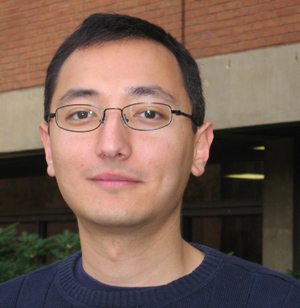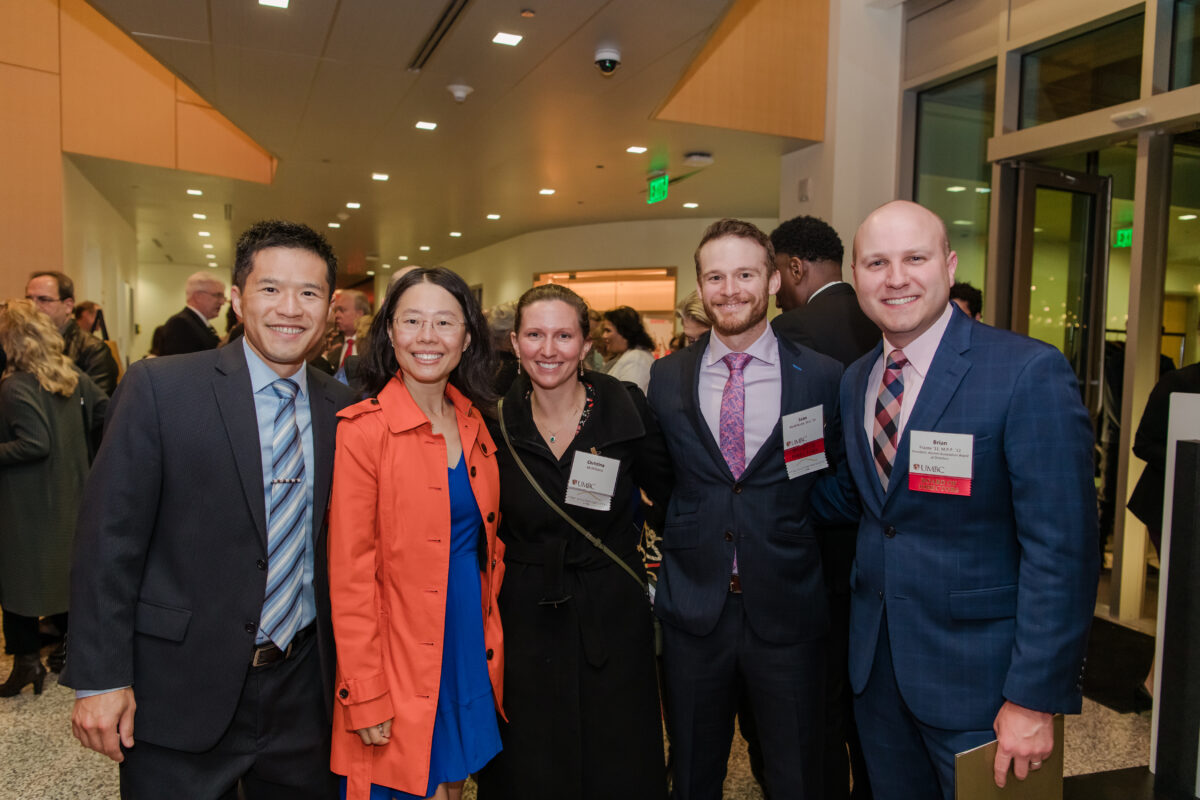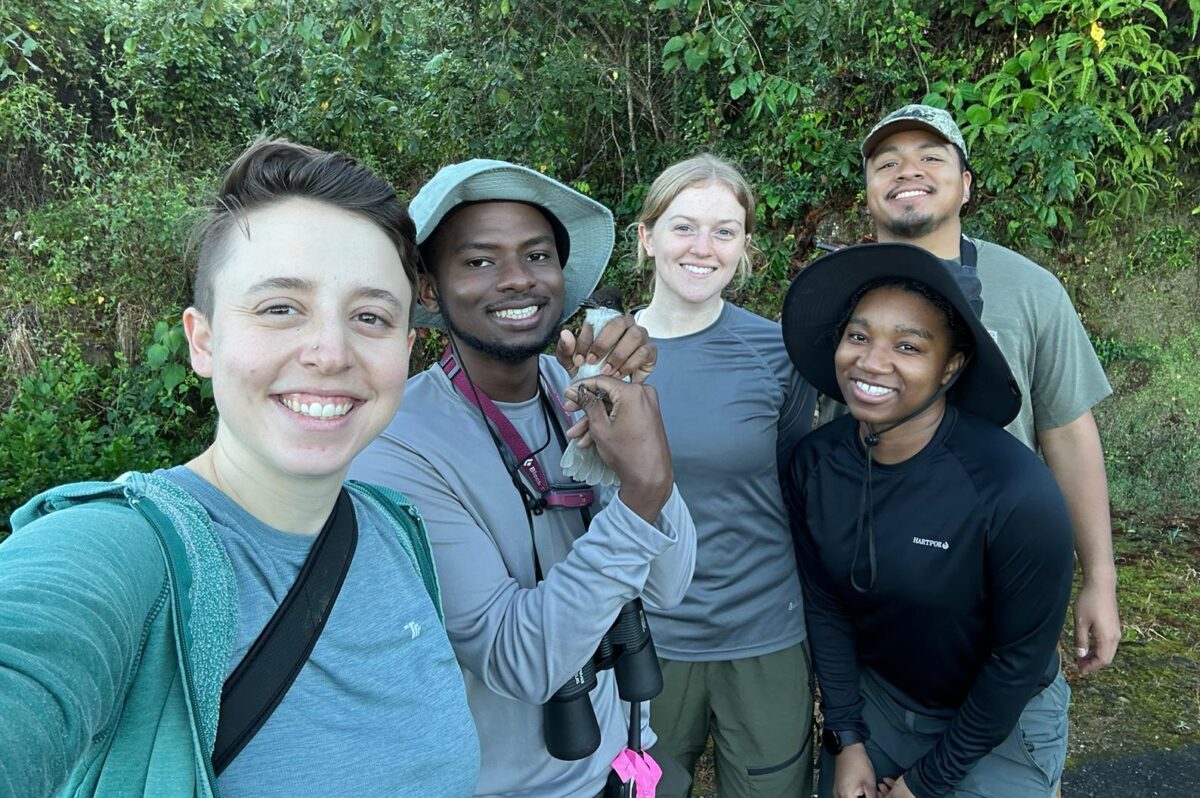 “But Mom, when am I going to use all this math stuff anyway?”
“But Mom, when am I going to use all this math stuff anyway?”
For parents, it’s a frequent refrain from kids of all ages, and sometimes in the age of spreadsheets and computer desktop calculators, it’s a question that’s as tough to answer as sample problems from the math section of the SAT.
But don’t say that to Kimball Martin ’99, who has turned his inquisitive nature and love of challenges into a robust career as an assistant professor of mathematics specializing in number theory.
“Math is not about numbers, but about ideas and problem solving,” he said. “Doing math helps you learn how to think and solve problems in general. As all of us have to deal with problems or make decisions constantly, I believe mathematicians constantly use their mathematical experience in daily life.”
“Two of my friends have at some point run their own construction businesses,” said Martin. “The first was an engineer, and was quite good at math, but the other was not so strong. The first one told me about how he used trigonometry all the time, to figure out things like how many steps and what size they would need, or how long they should cut beams for the roof, and it was very easy and efficient.
“The other friend said they climb up on the roof and measure how long the beams should be, or experiment to see how many steps are needed, and as a result it took him and his crew much longer to finish their job. I believe having some proficiency in mathematics often comes up in surprising ways down the road. After all, life is full of surprises.”
Martin, a former Goldwater Fellow, was known for always pushing onward to the next challenge during his time at UMBC. A native of Mechanicsburg, Penn., he took college courses while still in high school and consistently surprised his UMBC professors with his desire to take and excel in advanced level courses. He went on to get his Ph.D. from Cal Tech, did his post-doc work at Columbia University and is now an assistant professor of math at the University of Oklahoma.
Martin specializes in the study of prime numbers – numbers such as 2, 5, 7 and 13, which are divisible only by one and themselves. “They’re a fundamental building block of arithmetic. There’s no apparent pattern to them. Somehow primes occur seemingly randomly but they also display statistical patterns.”
Martin initially wanted to be a visual art and computer science major as a freshman, but then settled into a double major in computer science and math. “By my junior year, I began to realize that most of the things I liked in computer science were the math aspects of it,” he said.
He interned at the National Security Agency for a summer, and was encouraged by the support and mentorship he received from the math department. “The math department here was small so I got to interact a lot with faculty. I spent most of my days here in the department, made a lot of friends there and in the dorms and apartments.”
To Martin, mathematics is a discipline that combines elements of art and science. While a math career may not be for everyone, to Martin there are certain traits essential for success in the field.
“You need curiosity, creativity and courage to be a mathematician,” he said. “Curiosity is first because mathematics is about understanding and discovering new things. Creativity, which is something that seems very mystical to me, is what allows us to see the new in things. Finally, courage is needed because math is not always easy. In fact, the interesting math is almost never easy.”
Martin recalls a particular homework problem from his post-doc days, which was assigned by his mentor, adjunct faculty member John Dillon. “Once you started, your formulas just started getting worse and worse, and you couldn’t see any way out of this hole you were getting yourself into. One of the students the class it was due said he couldn’t get it, he just wound up with these horrific equations, and Dillon said ‘Be brave. You have to be brave. If you just keep going, you’ll get the answer in the end.’ And he was right. I encounter and struggle with this sort of thing all the time in research.”
Martin is quick to point out that “A Beautiful Mind”-style stereotypes of the brilliant mathematician with poor social skills isn’t the reality. “Most of us are relatively normal with a slight tendency towards thoughtfulness,” said Martin. “Plus I like to play jokes,” he said. “I once hid live crabs in someone’s office. I had accomplices, though. I didn’t act alone.”
So what is the answer for the teenager who doubts that he or she will ever use this stuff?
According to Martin, math is like any other subject: you get out what you put in.
“Beyond basic arithmetic and algebra, most people probably won’t use what they learn in the textbooks after school. However, most college students don’t use the contents of their courses in their subsequent jobs either. Nevertheless, during the process of going through the course and learning the material and doing the assignments, I firmly believe you learn much more than what’s in the book. Furthermore, you often do use the content of a course in later courses in school, whose value is not to be underestimated.
Martin closed his interview with wise words for students of any subject. “If you treat one class as a waste of your time, then your subsequent classes will also be a waste of time, because you won’t be able receive what your teachers have to offer.”
– Chip Rose
Originally posted July 2008
Tags: Math, Mathematics




